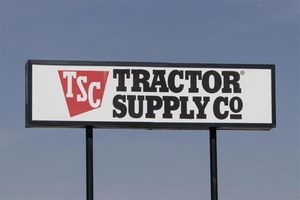-- With the European Union’s Deforestation Regulation (EUDR) enforcement date drawing near, global supply chains remain alarmingly underprepared to comply with its stringent traceability and segregation requirements. A 2025 Forbes analysis reveals that while zero-deforestation commitments are becoming standard practice, only 30% of upstream suppliers and only 12% of downstream actors have established systems to trace deforestation risks, putting billions in EU-bound trade at serious risk.
Among the most pressing, yet frequently underestimated, threats to EUDR compliance is the mixing of compliant and non-compliant commodities—whether through negligence or operational shortcomings across transport, aggregation, or trade activities. The regulation mandates strict separation of goods sourced from compliant versus non-compliant land, including those of unknown origin. This means commodities must remain physically segregated throughout the entire supply chain—from harvest to export. Any failure to maintain this separation could result in outright rejection of shipments at EU borders.
KOLTIVA, the Swiss-Indonesian AgriTech firm specializing in traceability and sustainable supply chains, warns that segregation— the physical and procedural separation of EUDR-compliant and non-compliant commodities—is a critical and often overlooked hurdle. Without immediate action, many agribusinesses risk losing access to the EU market altogether.
Compliant goods under the EUDR must meet strict criteria, including verified land ownership, deforestation-free status, and precise geolocation. Any commodities harvested from land deforested after 31 December 2020, or lacking verifiable traceability, are deemed non-compliant and must be entirely separated. If compliant and non-compliant products are mixed—whether from unregistered plots or unknown sources—the entire shipment will be barred from entering EU markets.
The challenge lies in the complexity of global supply chains, where intermediaries and insufficient documentation can make tracking products back to their source difficult. This is where segregation becomes essential—not just for compliance, but as a vital risk mitigation strategy. KOLTIVA supports field teams using the KoltiTrace mobile apps to ensure transparency. Its methodology approach includes three levels of traceability analysis—geospatial-only, risk-based (geospatial & surveys), and strict compliance (full field verification)—helping businesses safeguard supply chains and prevent non-compliant goods from entering the market.

André Mawardhi, Senior Manager of Agriculture and Environment at KOLTIVA, highlights the unique challenges posed by smallholder supply chains. “Achieving full physical segregation when sourcing from smallholders is a significant challenge. These supply chains are often intricate, with many points where mixing can inadvertently happen, and there’s always a chance that some plots may not be fully mapped. Some companies may choose to exclude sourcing from smallholders to simplify compliance, but that approach risks marginalizing farmers who are essential to sustainable commodity production. Businesses must carefully balance the need for compliance with the importance of inclusion,” he says.
For smallholder farmers, segregation is even more complex. Many smallholder farmers manage multiple plots, some of which comply with EUDR, while others do not. Without reliable segregation practices, there’s a high risk of mixing products from different plots, which could result in the entire harvest being rejected from EU markets.
“We manage more than one plot, and Koltiva has already mapped some,” said Rahman Sarwono, a rubber farmer in Kutai Barat, East Kalimantan. “I understand the mapping helps define plot boundaries. If we’re trained to separate harvests between mapped and unmapped plots—those that are compliant and those that are not—it will help us, and our communities, to meet the regulation,” said Rahman, who has been working to meet EUDR requirements. "As farmers, we’re committed to comply, but we also need support, training, and education to do it as required by the regulation. Otherwise, even a small mistake can shut us out of the market altogether."
According to Andre, navigating this complexity requires a structured, multi-step approach. First, ensure Verified Compliance and Documentation across all supply chain actors. This includes mapping farms with accurate legal land use, confirming the absence of deforestation risk, and ensuring compliance with environmental, social, and anti-corruption standards. Physical and documented separation of materials is essential from the origin to the point of export. Second, implement a Traceability System to verify deforestation-free sourcing. Accurate farm polygons and digital tools, such as mobile apps, enable end-to-end tracking of rubber. Agent-assisted data collection strengthens credibility and ensures transparency across all levels.
Third, develop a Segregated Handling and Storage infrastructure. Utilize dedicated warehouses, separate transportation units, and consistent labeling systems to maintain the purity of compliant materials. Clear operational controls are crucial for maintaining physical separation. Fourth, provide Field Training and Monitoring for farmers, dealers, and suppliers to ensure that segregation practices are understood and followed. Regular monitoring must be in place to assess compliance and correct any gaps in implementation.
Indryani Bali, Project Leader for Rubber Sector at KOLTIVA, added, "Segregation for EUDR compliance shouldn't come at the cost of smallholder inclusion. That’s why KOLTIVA focuses on building local capacity—from training farmers and dealers to equipping businesses with real-time traceability data. We’re creating systems that are both traceable and inclusive." As the EUDR enforcement date approaches, businesses must prioritize implementing robust systems for segregation and traceability. Failure to do so not only risks non-compliance but also jeopardizes access to the EU market and the reputation of supply chain actors.
For smallholders like Rahman, support from companies and governments is crucial. “We want to protect forests and meet EUDR standards,” Rahman added. “But without clear guidance, even small mistakes can cost us everything. With the right support, we’re ready to do our part—because our future and also the environment depend on it.”
Contact Info:
Name: Daniel Prasetyo
Email: Send Email
Organization: KOLTIVA
Website: https://www.koltiva.com
Release ID: 89164475
In the event of any inaccuracies, problems, or queries arising from the content shared in this press release, we encourage you to notify us immediately at error@releasecontact.com (it is important to note that this email is the authorized channel for such matters, sending multiple emails to multiple addresses does not necessarily help expedite your request). Our diligent team will be readily available to respond and take swift action within 8 hours to rectify any identified issues or assist with removal requests. Ensuring the provision of high-quality and precise information is paramount to us.






